Join the journey: Click here to get our top tips for affordable travel!


How to Say Travel in 100 Different Languages
Do you want to learn how to say travel in different languages if so, you have come to the right spot .
Travel is the gift that ties all cultures together, and helps us learn from one another. As such, this post provides a list of how to say travel in different languages. I speak three languages, and study linguistics as much as I can. I personally think that the more we know about how others describe the world, the better we will be.
This post begins with the top 25 most spoken languages and then breaks up each of the remaining languages by continent of origin.
Table of Contents
The Definition of Travel
For the sake of this post, we are covering the noun travel . The meaning (in English) is as follows: Travel can be defined as the act of moving from one geographical location to another, typically over a considerable distance. It involves exploration, experiencing different cultures, cuisines, traditions, and landscapes. Travel can also be seen as a journey of personal growth and self-discovery, allowing individuals to expand their horizons, gain new perspectives, and create lasting memories.
Interested in improving your language skills? Check out iTalki and Lingopie – my personal favorites for learning languages. These helped me reach and maintaing intermediate Spanish and Portuguese!
Travel in Different Languages: The Top 25 Most Spoken Languages
I’m starting off this post with the languages that are most spoken around the globe, and therefore the most useful languages to know if you are studying a foreign language.
1. Mandarin : 旅行 (Lǚxíng)
Spoken in: China and Taiwan
2. Spanish : el viaje (vee-ah-hey)
Spoken in over 18 countries and territories, including Spain, Argentina, Bolivia, Chile, Colombia, Costa Rica, Cuba, Guatemala, Mexico, and Puerto Rico .
3. English : travel
English is a major language in the US, the United Kingdom, Canada, Australia, and New Zealand.
4. Arabic : السفر (alsafar)
Arabic is spoken in 25 countries, but the language does differ greatly from African countries (e.g., Morocco, Algiria) to the Gulf / Middle East countries (e.g., Kuwait, the UAE). Egyptian Arabic is most commonly taught as a “neutral” version that can be understood by the majority of speakers.
5. Hindi : यात्रा (yaatra)
Hindi is one of the official languages of India (alongside English).
6. Portuguese : a viagem
Portuguese is the official language of Portugal, Brazil, Angola, Cabo Verde, Guinea-Bissau, Mozambique, São Tomé and Príncipe and East Timor.
7. Bengali : একটি ভ্রমণ (Ēkaṭi bhramaṇa)
Spoken in Northeastern India and Bangladesh.
8. Russian : поездка (poyezdka)
Russia is the official language of Russia, Belarus, Kyrgystan, and Kazakhstan, and spoken in several former Soviet countries.
9. Japanese : 旅 (tabi)
Japan is the official language of Japan and spoken widely in Hawaii too.
10. Landha (Western Punjabi) : ਯਾਤਰਾ (Yātarā)
Landha is spoken in parts of Pakistan and India.
11. Vietnamese: du lịch
Vietnamese is the official language of Vietnam.
12. Turkish : seyahat
Turkish is the official language of Turkey and also spoken in nearby countries such as Cyprus, Iran, Iraq, and more.
13. Marathi : Pravāsa
Marathi is spoken in western and central India (including Mumbai).
14. Telugu : ప్రయాణం (Prayāṇaṁ)
Telugu is spoken in Southern India.
15. Malay : perjalanan itu
Malay is spoken primarily in Malaysia, and some neighboring countries.
16. Korean : 여행 (yeohaeng)
Korean is spoken in both North Korea and South Korea.
17. French : le voyage
French is the official language of 28 countries, including France, Benin, Congo, Monaco, Senegal, and more.
18. Tamil : அந்த பயணம் (Anta payaṇam)
Tamil is the official language of the Indian state of Tamil Nadu.
19. German : die Reise
The German langauge is official in German, Austria, Switzerland, and Liechtenstein. It also is widely spoken in the Italian province of South Tyrol, Luxembourg, and Belgium.
20. Urdu : سفر (sufuh)
Urdu is the national language of Pakistan, and it has strong lexical similarity to Hindi (both derived from ancient Sanskrit).
21. Javanese : lelungan
Javanese is the official language of Indonesia.
22. Italian : il viaggio
Italian is the official language of Italy, as well as San Marino, and certain provinces in Switzerland. It is the closest language to ancient Latin.
23. Farsi : سفر
Farsi is also known as Persian, and is the official language of Iran.
24. Gujarati : પ્રવાસ (Pravāsa)
Gujarati is primarily spoken in the Indian state of Gujarat.
25. Pashto : سفر
Pashto is spoken in Afganistan, Pakistan, and Iran.
Travel in Different Languages: African Languages
26. afrikaans : die reis, 27. amharic : ጉዞው (guzowi), 28. bambara : taama in na, 28. fulani : yaadu, 29. hausa : tafiyar, 30. igbo : njem ahụ, 31. malagasy : ny dia, 32. oromo : imala sana, 33. shona : kufamba, 34. somali : safarka, 35. sudanese : perjalanan, 36. swahili: safari, 37. tigrinya : ምጉዓዝ, 38. twi : akwantuo, 39. xhosa : uhambo, 40. yoruba : irin-ajo naa, 41. zulu : uhambo, travel in different languages: asian languages, 42. armenian : ճանապարհորդություն (chanaparhordut’yun), 43. assamese : ভ্ৰমণ, 44. azerbaijani : səyahət, 45. burmese : ခရီးသွား (hkareeswarr), 46. cantonese : 去旅行 (hoi loi hung), 47. cebuano : ang pagbiyahe, 48. filipino : paglalakbay, 49. georgian : მოგზაურობა (mogzauroba), 50. hebrew : לִנְסוע (keday lensoa), 51. indonesian : bepergian, 52. kannada : ಪ್ರಯಾಣ (prayāṇa), 53. kazakh : саяхат (sayaxat), 54. khmer : ការធ្វើដំណើរ (kar thveudamnaer), 55. kurdish : gerrîn, 56. kyrgyz : саякат (sayakat), 57. laotian : ທ່ອງທ່ຽວ (thong thiav), 58. mongolian : аялал (ayalal), 59. nepali : यात्रा (yātrā), 60. sinhala : සංචාරය (saṁcāraya), 61. thai : การท่องเที่ยว (kār th̀xngtheī̀yw), 62. turkmen : syýahat, 63. uzbek : sayohat, travel in different languages: european languages, 64. albanian : udhëtimin, 65. basque : bidaia, 66. bosnian : putovanje, 67. bulgarian : пътуването (pŭtuvaneto), 68. catalan : el viatge, 69. corsican : u viaghju, 70. croatian : putovanje, 71. czech : cestování, 72. danish : rejsen, 73. dutch : de reis, 74. estonian : reisimine, 75. finnish : matkaa, 76. galician : a viaxe, 77. greek : το ταξίδι (to taxídi), 78. hungarian : az utazás, 79. icelandic : ferðalagið, 80. irish : an taistil, 81. latin : de peregrinatione, 82. lithuanian : kelionė, 83. luxembourgish : d’rees, 84. macedonian : патувањето (patuvanjeto), 85. maltese : l-ivvjaġġar, 86. norwegian : reisen, 87. polish : podróż, 88. scottish gaelic : an siubhal, 89. swedish : resan, 90. ukranian : подорож (podorozh), 91. western frisian : de reis, 92. welsh : y teithio, travel in different languages: north american languages, 93. hatian creole : vwayaj la, 94. nahuatl : nenemi, travel in different languages: oceanic languages, 95. hawaiian : ka huakaʻi, 96. maori : te haerenga, 97. samoan : le malaga, travel in different languages: south american languages, 98. aymara : ukatsti uka viaje, 99. guarani : pe jeguata, 100. southern quechua : chay puriyta.
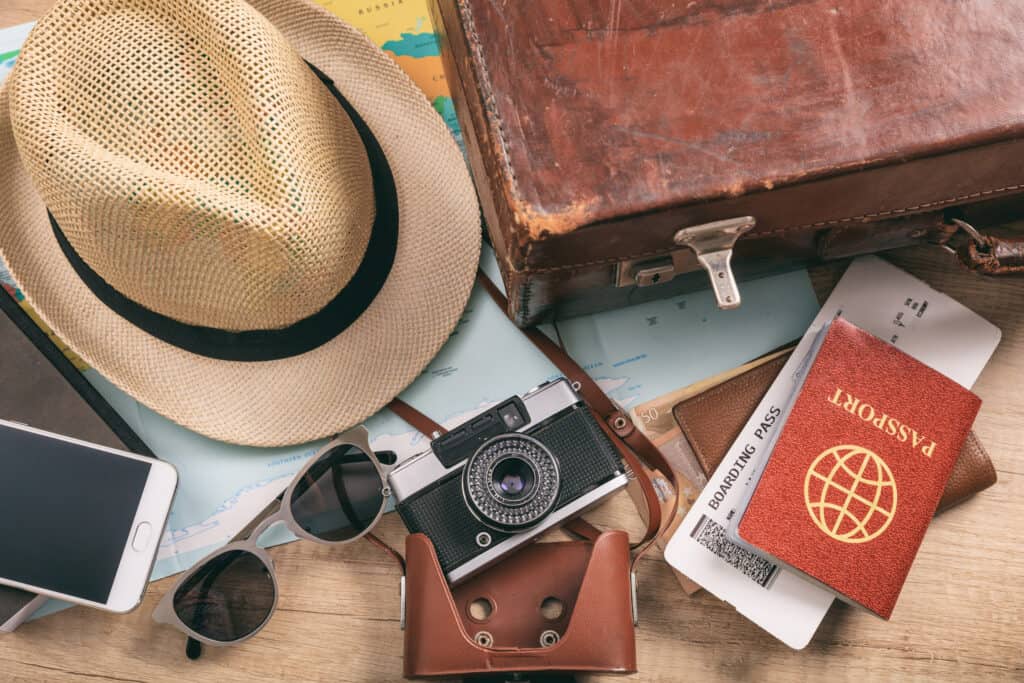
The Best Apps and Resources for Language Learning
If you are interested in learning a new language, here are a few apps and resources I think may be the most helpful to you:
As I mentioned in my post on Spanish p hrases , practicing is really key to feeling comfortable using a new language. You can practice with native speakers by using my favorite language resource, iTalki . On this site you can practice with a tutor, formal teacher, or others just seeking to do a language exchange (for free!). It is hands down the best way to expand your language skills.
This app is best for improving your reading comprehension. And believe it or not, improving your reading comprehension is maybe the best way to consistently expand your vocabulary. (Consider how babies learn languages). On this app, you are provided with videos that come with captions to help you pick up on the vocabulary that you hear. Try Lingopie today !
While I can’t recommend Duolingo alone for learning a langauge, I recommend using this free app to expand and practice your vocabulary in a new language. Note, there is a paid option, but I think the free version is all that you need with this one.
Even better for building vocabulary is Drops, in my opinion. It has a variety of more real-life categories that you can opt for yourself to learn from. You do have to pay an annual fee, but it is absolutely worth it.
Google Translate
If you don’t have time to learn a language before you travel . I recommend using one of the best translation apps out there – Google Translate. This app does wanders for picking up live conversations so you can chat with people like taxi drivers or other new friends in the local language. Even if it is a little indirect.
FAQs About Travel in Different Languages
The root word for “travel” is derived from the Old French word “travailler,” which means “to work, labor, toil, or journey.” Interestingly, it originally denoted the strenuous nature of medieval journeying. Hence, travel inherently carries the essence of a laborious journey.
The word for longing for travel is “wanderlust.” Wanderlust can also be described as a wistful longing for travel as well.
The Old English word for travel is “faran,” which essentially means to journey or to go. It conveys the sense of moving from one place to another, much like the modern term ‘travel’.
Journey Voyage Tour Trip Expedition Trek Roam Navigate Wander Cruise
Travel itch Fernweh Desire to travel Travel bug Itchy feet Globetrotting Adventurousness Nomadism Exploration obsession Journeying passion
In Summary | Travel in Different Languages
I hope that this post has inspired you to explore languages more, or at the very least, inspired you to experience a bit of wanderlust. Learning how to say words like travel in different languages is the start to breaking down language barriers and is a great way to get to know new people in any new place. I hope you will now begin to channel your love of travel into something fruitful, such as learning a second language.
More Words in Different Langauges
- I Love You in Different Languages
- Goodbye in Different Languages
Interested in Learning More? Check Out these Travel Language Guides:
- Spanish for travel
- Portuguese for travel
- Japanese for travel
- Greek for travel
- French for travel
- Italian for travel
- Thai for travel
- Languages and travel
Don’t forget to pin this for later!

Christen Thomas is the founder of TravelWanderGrow, established in 2018. She has lived abroad and traveled extensively to over 30 countries. In addition, she is a certified Travel Advisor and is an expert in planning trips focused on city history and culture. As a frequent traveler, she also shares tips on how to prepare to travel well and how to save money while doing so.
Leave a Reply Cancel reply
Your email address will not be published. Required fields are marked *

“A good traveler has no fixed plans, and is not intent on arriving.”

What Is the Etymological Origin of the Word 'Travel'?

The image above was possibly inspired by "Noel Kempff Mercado National Park," which was itself inspiration for Arthur Conan Doyle's book, 'The Lost World.'
Noel Kempff Mercado National Park
"The Park is dominated by a large tableland of 7000 sq km, the Bolivian side of which is Serrania Huanchaca, and the Brazilian side is Sererania Ricardo Franco. The intervening Rio Verde marks the national boundary. The tableland is bounded by precipitous cliffs, 200 to 700 metres in height. The rocks of the tableland comprise Proterozoic sandstones, deposited around 1 billion years ago, intruded by a tholeiitic sill/dyke complex. These overlie an older basement of granites and metamorphic rocks which crop out over the Amazonic plain. The surface of the tableland is overlain by Cretaceous sandstones, and there are laterites and siliceous duricrusts which mark stages of Tertiary uplift and peneplanation.[8]
The Huanchaca Plateau within the park is 600-900 m above sea level and is composed of Precambrian sandstone and quartzite of the Brazilian Shield."
~ Wikipedia
Getting Where You Want To Go Easily
Travelling today is not only cheap, but also efficient thanks to modern aerospace technologies like the Airbus A350-900, Airbus A340-600, Boeing 777-300ER, and Boeing 747-8.
Getting around however, was historically not so easy to do. The word travel is originally derived from the word 'torture.'
" Travel and travail are doublets - that is to say, they have a common ancestor, but have split into separate words. Their ultimate source is medieval Latin trepalium, a term for an instrument of torture made of three sharp stakes. This was a compound noun formed from Latin tres 'three' and palus 'stake' (source of English pale ). From it was formed a verb trepaliare 'torture on the trepalium, ' hence generally 'torture.' This passed into Old French as travailler, where its reflexive use 'put oneself to pain or trouble' evolved to 'work hard.' Its noun derivative travail 'painful effort, hard work' was borrowed by English as travail, and this quickly developed a new sense, 'journey' (presumably from the notion of a 'wearisome journey'), which came to be distinguished by the spelling travel. "
~ John Ayto, "Dictionary of Word Origins"
Featured Posts

Achieving Alignment Through Communication

Developing Cognitive Ambidexterity

Seventeen Secrets to Living Your Best Life in 2024

Characteristics of a Winner
Similar Posts

What Is the Etymological Origin of the Word 'Gratitude'?

What Is the Etymological Origin of the Word 'Algorithm'?
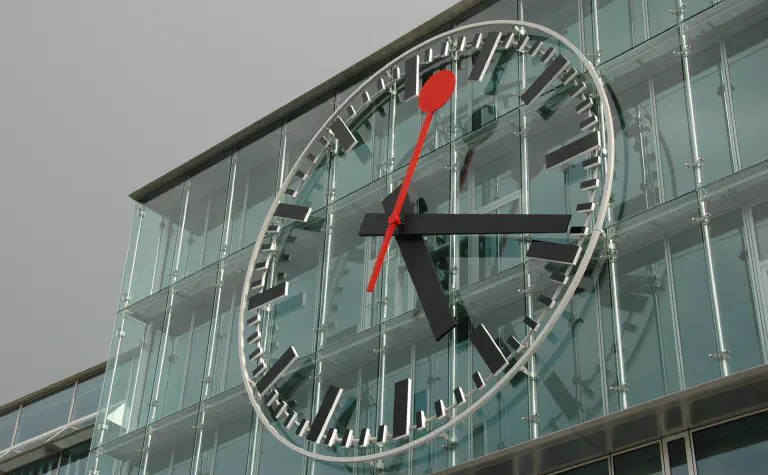
What Is the Etymological Origin of the Word 'Thing'?
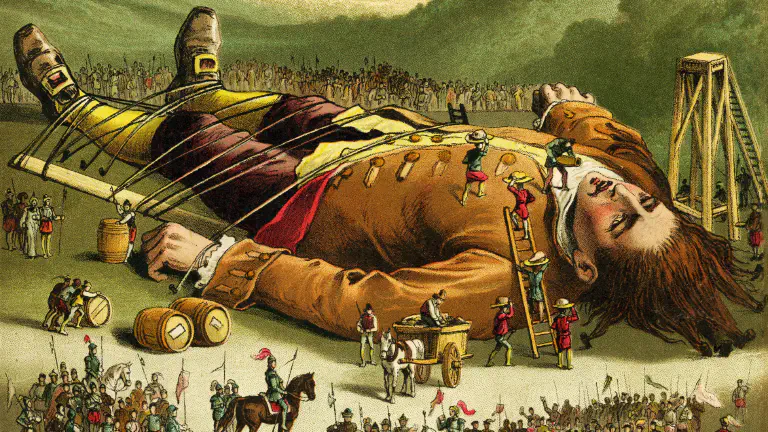
What Is the Etymological Origin of the Word 'Large'?

What Is the Etymological Origin of the Word 'Jean'?

What Is the Etymological Origin of the Word 'Pants?'
Featured Vimeos

Featured Playlists

Recent Posts

What Is the Etymological Origin of the Word 'Start'?

What Is the Etymological Origin of the Word 'Appraisal'?

What Is the Etymological Origin of the Word 'November'?

What Is the Etymological Origin of the Word 'Rush'?
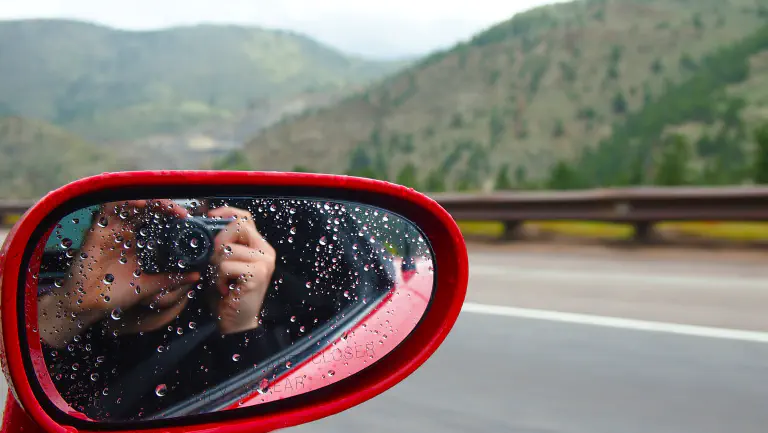
What Is the Etymological Origin of the Word 'Respect'?

What Is the Etymological Origin of the Word 'Team'?
- 1.1 Alternative forms
- 1.2 Pronunciation
- 1.3.1.1 Conjugation
- 1.3.1.2 Synonyms
- 1.3.1.3 Derived terms
- 1.3.1.4 Translations
- 1.4.1.1 Usage notes
- 1.4.1.2 Synonyms
- 1.4.1.3 Derived terms
- 1.4.1.4 Translations
- 1.4.1.5 Further reading
- 1.5 References
- 1.6 Anagrams
- 2.1 Etymology
- 2.2 Adjective
- 2.3 References
- 3.1 Etymology
- 3.2 Adjective
- 3.3 References
English [ edit ]
Alternative forms [ edit ].
- travail ( obsolete )
- travell ( obsolete )
Pronunciation [ edit ]
- IPA ( key ) : /ˈtɹævəl/
- Rhymes: -ævəl
Etymology 1 [ edit ]
From Middle English travelen ( “ to make a laborious journey, travel ” ) from Middle Scots travailen ( “ to toil, work, travel ” ) , alteration of Middle English travaillen ( “ to toil, work ” ) , from Old French travailler ( “ to trouble, suffer, be worn out ” ) . See the doublet travail .
Largely displaced fare , from Old English faran ( “ to go [a long distance], to travel ” ) . More at fare .
Verb [ edit ]
travel ( third-person singular simple present travels , present participle travelling or ( US ) traveling , simple past and past participle travelled or ( US ) traveled )
- 1661 , John Stephens, An Historical Discourse... , Prol.: He that feareth oblatration must not travel .
- 1930 , Marmaduke Pickthall , transl., The Meaning of the Glorious Koran , surah 28, verse 29: Then, when Moses had fulfilled the term, and was travelling with his housefolk, he saw in the distance a fire and said unto his housefolk: Bide ye (here). Lo! I see in the distance a fire; peradventure I shall bring you tidings thence, or a brand from the fire that ye may warm yourselves.
- ( intransitive ) To pass from one place to another; to move or transmit . Soundwaves can travel through water. The supposedly secret news of Mary's engagement travelled quickly through her group of friends.
- ( intransitive , basketball ) To move illegally by walking or running without dribbling the ball.
- ( transitive ) To travel throughout (a place). I’ve travelled the world.
- 1596 (date written; published 1633 ), Edmund Spenser , A Vewe of the Present State of Irelande [ … ] , Dublin: [ … ] Societie of Stationers, [ … ] , →OCLC ; republished as A View of the State of Ireland [ … ] (Ancient Irish Histories), Dublin: [ … ] Society of Stationers, [ … ] Hibernia Press, [ … ] [ b ] y John Morrison, 1809 , →OCLC : They shall not be travailed forth of their own franchises.
- 1707 , Richard Baxter, The Practical Works of the Late Reverend and Pious Mr. Richard Baxter , page 646 : Necessity will make men fare hard, and work hard, and travel hard, go bare, and suffer much; yea it will even cut off a leg or arm to save their lives;
- 1719 , William Tilly, The Acceptable Sacrifice , page 335 : We labour sore, and travel hard, and much Study is a Weariness to our Flesh; and of making many Books there is no End.
- 1794 , “Resignation”, in A Complete Edition of the Poets of Great Britain.Volume 10 , page 144 : Man holds in constant service bound The blustering winds and seas; Nor suns disdain to travel hard Their master, man, to please;
Conjugation [ edit ]
† Archaic or obsolete . * US.
Synonyms [ edit ]
- fare , journey , reyse
Derived terms [ edit ]
- fellow-travel
- road less traveled
- travellable , travelable
- travelled , traveled ( adjective )
- traveller , traveler
- travel light
Translations [ edit ]
Etymology 2 [ edit ].
From Middle English travail , travell , from Old French travail , travaille , travaillie , traval , travalle , traveaul , traveil , traveille , travel . Doublet of travail .
Noun [ edit ]

travel ( countable and uncountable , plural travels )
- The act of traveling; passage from place to place. space travel travel to Spain
- 2023 November 29, 'Mystery Shopper', “Does the railway deliver for passengers?”, in RAIL , number 997 , page 53 : But overall, I think the railway delivered very well on my travels . I'd give it 9/10 - there are just a few little rough edges that need smoothing off.
- 1903 , Henry Yule, Arthur Burnell, Hobson-Jobson : CALUAT, s. This in some old travels is used for Ar. khilwat, 'privacy, a private interview' (C. P. Brown, MS.).
- The activity or traffic along a route or through a given point.
- The working motion of a piece of machinery; the length of a mechanical stroke. There was a lot of travel in the handle, because the tool was out of adjustment. My drill press has a travel of only 1.5 inches.
- 1667 , John Tanner, The hidden treasures of the art of physick , page 208 : Hard Labour is when more vehement Pains and dangerous Symptomes happen to Women in Travel , and continue a longer time.
- Distance that a keyboard's key moves vertically when depressed. The keys have great travel .
Further reading [ edit ]
References [ edit ].
- “ travel ”, in The Century Dictionary [ … ] , New York, N.Y.: The Century Co. , 1911 , →OCLC .
- “ travel ”, in Webster’s Revised Unabridged Dictionary , Springfield, Mass.: G. & C. Merriam , 1913 , →OCLC .
Anagrams [ edit ]
- retval , varlet
Norwegian Bokmål [ edit ]
Etymology [ edit ].
Possibly from French travail ; compare with Danish travl .
Adjective [ edit ]
travel ( neuter singular travelt , definite singular and plural travle , comparative travlere , indefinite superlative travlest , definite superlative travleste )
- “travel” in The Bokmål Dictionary .
Norwegian Nynorsk [ edit ]
travel ( neuter singular travelt , definite singular and plural travle , comparative travlare , indefinite superlative travlast , definite superlative travlaste )
- “travel” in The Nynorsk Dictionary .
- English 2-syllable words
- English terms with IPA pronunciation
- English terms with audio links
- Rhymes:English/ævəl
- Rhymes:English/ævəl/2 syllables
- English terms derived from the Proto-Indo-European word *tréyes
- English terms derived from Proto-Indo-European
- English terms derived from the Proto-Indo-European root *peh₂ǵ-
- English terms inherited from Middle English
- English terms derived from Middle English
- English terms derived from Middle Scots
- English terms derived from Old French
- English doublets
- English lemmas
- English verbs
- English intransitive verbs
- English terms with usage examples
- English terms with quotations
- en:Basketball
- English transitive verbs
- English terms with obsolete senses
- English nouns
- English uncountable nouns
- English countable nouns
- en:Typing keyboards
- Norwegian Bokmål lemmas
- Norwegian Bokmål adjectives
- Norwegian Nynorsk lemmas
- Norwegian Nynorsk adjectives
- Pages using WikiHiero
- English entries with topic categories using raw markup
- Requests for translations into Chechen
- Mandarin terms with redundant transliterations
- Khmer terms with redundant script codes
- Nepali terms with redundant transliterations
- Tibetan terms with redundant script codes
- Ukrainian terms with redundant script codes
- Requests for translations into White Hmong
- Requests for review of Spanish translations
- Requests for review of Esperanto translations
- Requests for review of Interlingua translations
- Requests for review of Volapük translations
- Quotation templates to be cleaned

Navigation menu
- Daily Crossword
- Word Puzzle
- Word Finder
- Word of the Day
- Synonym of the Day
- Word of the Year
- Language stories
- All featured
- Gender and sexuality
- All pop culture
- Grammar Coach ™
- Writing hub
- Grammar essentials
- Commonly confused
- All writing tips
- Pop culture
- Writing tips
Advertisement
[ trav - uh l ]
verb (used without object)
to travel for pleasure.
- to move or go from one place or point to another.
- to proceed or advance in any way.
- to go from place to place as a representative of a business firm.
He travels in a wealthy crowd.
- Informal. to move with speed.
- to pass, or be transmitted, as light or sound.
- Basketball. (of a player in possession of the ball) to take more than two steps without dribbling or passing the ball.
- to move in a fixed course, as a piece of mechanism.
verb (used with object)
- to travel, journey, or pass through or over, as a country or road.
We traveled a hundred miles.
to travel logs downriver.
to travel to other planets.
to set out on one's travels.
a book of travels.
- such an account or work.
an increase in travel on state roads.
- Basketball. an instance of traveling with the ball.
- the complete movement of a moving part, especially a reciprocating part, in one direction, or the distance traversed; stroke.
- length of stroke.
to reduce the travel of food from kitchen to table.
a travel alarm clock.
/ ˈtrævəl /
she travelled across France
he travels to improve his mind
he travelled the country
- to go, move, or cover a specified or unspecified distance
to travel in textiles
- (esp of perishable goods) to withstand a journey
the sound travelled for miles
- to progress or advance
- basketball to take an excessive number of steps while holding the ball
- (of part of a mechanism) to move in a fixed predetermined path
that car certainly travels
- informal. often foll by with to be in the company (of); associate
- the act of travelling
a travel brochure
- usually plural a tour or journey
- the distance moved by a mechanical part, such as the stroke of a piston
- movement or passage
Discover More
Spelling note, other words from.
- travel·a·ble adjective
- non·travel·ing adjective
- non·travel·ling adjective
- outtravel verb (used with object) outtraveled outtraveling or (especially British) outtravelled outtravelling
- pre·travel noun verb pretraveled pretraveling or (especially British) pretravelled pretravelling
- un·travel·ing adjective
- un·travel·ling adjective
Word History and Origins
Origin of travel 1
Example Sentences
López said she could not travel to Mexico because she is undocumented.
Sound waves traveling thousands of kilometers through the ocean may help scientists monitor climate change.
Biden traveled to the state days later, meeting with the Blake family and calling for unity and healing in the community, though he, too, denounced the violence that followed the shooting.
TripActions says it has added nearly 500 new corporate customers since March, a surprising achievement at a time when most employees are still not traveling freely.
The Covid-19 coronavirus pandemic, which was first identified in China in December, has had sweeping effects in the public health, business, and travel sectors, among others.
You just travel light with carry-on luggage, go to cities that you love, and get to hang out with all your friends.
He did travel to China and Australia while the story was unfolding.
In doing so he exposed the failure of other airlines in the region to see the huge pent-up demand for cheap travel.
“The tribe is really made of people who put travel as a priority in their entire lifestyle,” says Evita.
Brands like Lo & Sons and Delsey are already tapping Travel Noire to connect with black travelers.
One thing was certain: Grandfather Mole could travel much faster through the water than he could underground.
The mothers know better than any one else how hard a way the little girl will have to travel through life.
He could lie in bed and string himself tales of travel and adventure while Harry was downstairs.
Under ordinary circumstances these men can travel with their burden from twenty to thirty miles a day.
The rules regulating travel on highways in this country are called, "the law of the road."
Related Words
- sightseeing
- More from M-W
- To save this word, you'll need to log in. Log In
Definition of travel
(Entry 1 of 2)
intransitive verb
transitive verb
Definition of travel (Entry 2 of 2)
- peregrinate
- peregrination
Examples of travel in a Sentence
These examples are programmatically compiled from various online sources to illustrate current usage of the word 'travel.' Any opinions expressed in the examples do not represent those of Merriam-Webster or its editors. Send us feedback about these examples.
Word History
Middle English travailen, travelen to torment, labor, strive, journey, from Anglo-French travailler
14th century, in the meaning defined at intransitive sense 1a
14th century, in the meaning defined at sense 1a
Phrases Containing travel
- pre - travel
- see / travel the world
- travel agency
- travel agent
- travel light
- travel sickness
- travel trailer
Articles Related to travel

Is it ‘traveling’ or...
Is it ‘traveling’ or ‘travelling’?
A tale of two variants
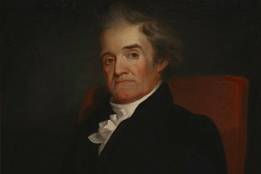
Noah Webster's Spelling Wins and Fails
Some of his biggest successes and defeats

8 Ways to Get Away From It All
Whether it's a jaunt or a junket, remember sunblock.
Dictionary Entries Near travel
Cite this entry.
“Travel.” Merriam-Webster.com Dictionary , Merriam-Webster, https://www.merriam-webster.com/dictionary/travel. Accessed 6 May. 2024.
Kids Definition
Kids definition of travel.
Kids Definition of travel (Entry 2 of 2)
Middle English travailen "torment, labor, strive, journey," from early French travailler "torment, labor," from an unrecorded Latin verb tripaliare "to torture," from Latin tripalium "an instrument of torture," literally "three stakes," derived from tri- "three" and palus "stake, pale" — related to pale entry 3 , travail
More from Merriam-Webster on travel
Nglish: Translation of travel for Spanish Speakers
Britannica English: Translation of travel for Arabic Speakers
Britannica.com: Encyclopedia article about travel
Subscribe to America's largest dictionary and get thousands more definitions and advanced search—ad free!

Can you solve 4 words at once?
Word of the day.
See Definitions and Examples »
Get Word of the Day daily email!
Popular in Grammar & Usage
More commonly misspelled words, your vs. you're: how to use them correctly, every letter is silent, sometimes: a-z list of examples, more commonly mispronounced words, how to use em dashes (—), en dashes (–) , and hyphens (-), popular in wordplay, 12 star wars words, the words of the week - may 3, a great big list of bread words, 10 scrabble words without any vowels, 8 uncommon words related to love, games & quizzes.

- Dictionaries home
- American English
- Collocations
- German-English
- Grammar home
- Practical English Usage
- Learn & Practise Grammar (Beta)
- Word Lists home
- My Word Lists
- Recent additions
- Resources home
- Text Checker
Definition of travel verb from the Oxford Advanced Learner's Dictionary
- I go to bed early if I'm travelling the next day.
- + adv./prep. to travel around the world
- I love travelling by train.
- We always travel first class.
- I travel abroad a lot.
- They travelled on the bus to and from work together.
- We travelled to California for the wedding.
- They enjoy travelling to other European countries.
- My client travels extensively on business.
- When I finished college I went travelling for six months (= spent time visiting different places) .
- travel something As a journalist, she has travelled the world .
- He travelled the length of the Nile in a canoe.
- I travel 40 miles to work every day.
- They travelled huge distances in search of food.
- Many residents must travel long distances to a grocery store.
- He travels back and forth across the Atlantic.
- He travels with a huge entourage.
- I prefer travelling independently to going on a package holiday.
- She travels widely in her job.
- The dissidents were unable to hold meetings or travel freely.
- The job gives her the opportunity to travel abroad.
- We decided to travel by car.
- We had to travel separately as we couldn't get seats on the same flight.
- We plan to travel through Thailand and into Cambodia.
- business people who travel regularly to the US
- information for the backpacker who wants to travel farther afield
- Children under five travel free.
- I spent a year travelling around Africa.
- More people travel by air than ever before.
- We travelled the length and breadth of the country.
- We've travelled a long way in the past few days.
- Hundreds of hospital patients may have to travel long distances for treatment.
- freedom to travel
- go travelling/traveling
- travel all over the world
Join our community to access the latest language learning and assessment tips from Oxford University Press!
- to travel at 50 miles an hour
- Messages travel along the spine from the nerve endings to the brain.
- News travels fast these days.
- He never travelled far from the home he shared with his mother.
- The wide streets allow cars to travel at high speeds.
- In the film, he travels back in time to the '50s.
- Is it possible for anything to travel faster than the speed of light?
- They seem to be travelling north.
- The truck was travelling at 90 mph when it veered off the road.
- Some wines do not travel well.
- These recipes travel well and don't require unusual ingredients or equipment.
- Some writing travels badly (= is not successful) in translation.
- Their car can really travel!
- She travels light, choosing to use as little equipment as possible.
Other results
- travel agents
- travel agencies
- travel agent’s
- travel-sickness
- adventure travel
- Association of British Travel Agents
- travel light
Nearby words
- traveler: a person who travels.
- Cambridge Dictionary +Plus
Meaning of travel in English
Your browser doesn't support HTML5 audio
travel verb ( MAKE JOURNEY )
- I like to travel but, then again, I'm very fond of my home .
- It's often quicker to travel across country and avoid the major roads altogether .
- Passengers without proper documentation will not be allowed to travel.
- The elderly travel free on public transport .
- We like to travel in the autumn when there are fewer tourists .
- The tragedy is that cultures don't always travel well, and few immigrant groups can sustain their culture over the long term .
- around Robin Hood's barn idiom
- communication
- public transport
- super-commuting
- transoceanic
- well travelled
You can also find related words, phrases, and synonyms in the topics:
travel verb ( MOVE )
- The objects travel in elliptical orbits .
- In 1947, a pilot flying over the Cascades saw nine metallic flying objects traveling at an estimated 1,200 miles per hour .
- The elevator traveled smoothly upward .
- White light separates out into its component wavelengths when traveling through a prism .
- As the material travels through the winding machine , excess liquid is squeezed out by rollers .
- Lead dust travels easily from hands to mouth and can't be seen .
- body English
- kinetic energy
- kinetically
- repair to somewhere
travel verb ( BREAK RULE )
- foul trouble
- free-throw lane
- free-throw line
- full-court press
- run-and-gun
travel noun ( ACTIVITY )
- They offer a 10 percent discount on rail travel for students .
- The price includes travel and accommodation but meals are extra .
- His work provided him with the opportunity for a lot of foreign travel.
- The popular myth is that air travel is more dangerous than travel by car or bus .
- Passes are available for one month's unlimited travel within Europe .
- break-journey
- circumnavigation
travel noun ( MOVEMENT OF OBJECT )
- It can be difficult to predict the travel of smoke from smouldering fires .
- The travel of the bullets and blood spatter showed that he was lying on the ground on his side when he was shot .
- This seemed to prove that light has a finite speed of travel.
- Striking the ball when the clubhead is already past the lowest point of its travel gives a slight overspin.
- The actuator then rotates its output shaft to the extremes of its travel.
- bring someone on
- non-competitor
- park the bus idiom
- play big idiom
- step/move up a gear idiom
travel | American Dictionary
Travel | business english, examples of travel, collocations with travel.
These are words often used in combination with travel .
Click on a collocation to see more examples of it.
Translations of travel
Get a quick, free translation!

Word of the Day
the Beaufort scale
a fixed set of numbers used for measuring and comparing wind speeds, from 0 (for calm) to 12 (for hurricane)

Hidden in plain sight: words and phrases connected with hiding

Learn more with +Plus
- Recent and Recommended {{#preferredDictionaries}} {{name}} {{/preferredDictionaries}}
- Definitions Clear explanations of natural written and spoken English English Learner’s Dictionary Essential British English Essential American English
- Grammar and thesaurus Usage explanations of natural written and spoken English Grammar Thesaurus
- Pronunciation British and American pronunciations with audio English Pronunciation
- English–Chinese (Simplified) Chinese (Simplified)–English
- English–Chinese (Traditional) Chinese (Traditional)–English
- English–Dutch Dutch–English
- English–French French–English
- English–German German–English
- English–Indonesian Indonesian–English
- English–Italian Italian–English
- English–Japanese Japanese–English
- English–Norwegian Norwegian–English
- English–Polish Polish–English
- English–Portuguese Portuguese–English
- English–Spanish Spanish–English
- English–Swedish Swedish–English
- Dictionary +Plus Word Lists
- travel (MAKE JOURNEY)
- travel light
- travel (MOVE)
- really travel
- travel (BREAK RULE)
- travel (ACTIVITY)
- travel (MOVEMENT OF OBJECT)
- Business Verb Noun
- Collocations
- Translations
- All translations
To add travel to a word list please sign up or log in.
Add travel to one of your lists below, or create a new one.
{{message}}
Something went wrong.
There was a problem sending your report.
Is it Traveling or Travelling—Correct Spelling Guide

What is the correct way to spell “traveling?” Can you spell it “travelling” if you want?
To travel the world and visit other countries is often seen as an enjoyable way to spend one’s free time.
But how do you spell “traveling,” the verb form of “travel”?
Don’t search anywhere else; here is everything you need to know about the term “travel.”
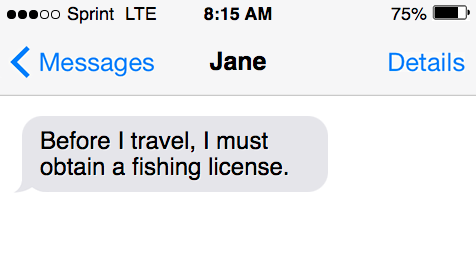
“Traveling” or “travelling”
The difference between the two terms is your audience.
That said, “traveling” is the preferred way to spell the word in the United States.
You will find this correct spelling in the Merriam-Webster dictionary.
However, if your readers are located in the United Kingdom in the Commonwealth , the term is spelled “travelling.”
The subtle distinction of one “L” versus two simply depends on what country you are writing in/for.
Therefore , “travelers” and “traveled” are the U.S. forms, while “travellers” and “travelled” are the UK forms.
No matter the country, the present tense form of the word “travel” is spelled the same and does not require a second “L” at the end.

Root word: travel
Travel can serve as a verb or a noun .
As an intransitive verb , “travel” is defined as “To go on a trip or tour to a destination.”
Similarly, as a transitive verb, “travel” is defined as “to journey through or over.”
The definition for “travel” in its noun form is “a journey, especially to a distance or unfamiliar place.”
Be aware that the noun version of the word is often used as a plural.

Travelers definition
Another term that comes from “travel” is “traveler” or, in its plural version, “travelers.”
That said, a traveler is commonly referred to as “one that goes on a trip or journey.”
Essentially, “traveler” can be used to describe a person who is taking a trip by car, train, plane, etc.
If subjects in a sentence are going on a journey through different countries or simply to the grocery store, they are “travelers.”

What type of word is “traveling?”
Verbs ending in “-ing” are either present participles or gerunds .
The two styles of words look the same, but their functions in a sentence are different.
Further , present participles can be used in all continuous verb formations ( past , present, future, etc.).
With verbs ending in “-ing,” the helping verb will tell the reader the tense (acting as a link) while the present participles remain unchanged.
Take the below examples, for instance:
- “The boy is watching the trains.”
- “Shelia was waiting for her survey.”
- “My family will be coming to Canada in July.”
- “The group would be moving to Germany if the cost wasn’t an issue.”
- “I would have been picking out my free ice cream flavor by now.”
Intransitive vs. transitive verbs
According to the Merriam-Webster definition, “traveling” can act as both a transitive and intransitive verb .
Transitive verbs will always have a noun that receives the action described by the verb; this noun is called the direct object .

“Tommy lifts the weight.”
In the previous example, “lifts” is the verb and “the weight” is the object receiving the verb’s action.
Therefore, “lifts” is a transitive verb.
On the other hand, intransitive verbs never have a direct or indirect object.
There is no object that receives an intransitive verb’s action.
“The group walks quickly to their destination.”
In this case, the verb is “walks,” and the modifying phrase is “quickly to their destination.”
As you will notice, no object receives the action that “walks” describes.
When to use traveling in writing
Recall that verbs ending in “-ing,” like “traveling,” can be used in the present, future, and past tense.
This present participles rely on the helping verb to indicate the tense of the sentence.

So, you can use the term to say the same thing, just in different tenses .
“He is traveling abroad” can also begin the following ways and still be grammatically correct.
- “He was…”
- “He will be…”
- “He would be…”
- “He would have been…”
You use this term to describe a subject who is, will be, was on their way to a different area than where they came from.
Examples of traveling in a sentence
If you have the correct spelling of the term down but are having a tough time using the term in a sentence, take a look at these sentences.
Using travel/traveling as a verb
- “If traveling were free, most people would take several trips a year.”
- “After traveling all day, all Lucy wanted to do was rest.”
- “I would like to travel and not get lost this time.”
- “Mark was only traveling for fun and leisure, not for work.”
- “All my life, I wanted to travel the world for fun, and now I finally get to!”
- “Before I travel, I must obtain a fishing license.”
Using travel as a noun
“At this time, international travel is banned for safety reasons.”
“He wanted to obtain a free travel license from the site, but the page wouldn’t load.”
“Safety was the top priority for Lisa after she would arrive at her travel excursion.”
“My travels demanded that I use services associated with the train to see my sister.”
“All her life, Katy was never oriented with foreign travel.”
“The new social movement talked about the future of crime and travel in the country.”
“I’d like to use this travel to connect with as many people as possible.”
Why is traveling commonly misspelled?
Why does “traveling” have two different ways of spelling the term?
Most of this is credited to Noah Webster , one link of the famous dictionary we frequently use today.
As a lexicographer and linguist, Webster influenced American English more than most people realize.
That said, he preferred the shorter version of most words that had multiple different ways of spelling.
After including the shorter version of terms in his dictionary, these words became dominant in the United States.
The rest of the English-speaking countries out there preferred the longer spellings of terms.
That said, countries like Australia, Canada, and the UK spell the term “travelling” with two “L”s instead of one.
How to remember which word to use
In the case of the present participle version of “travel,” remember that shorter is better.
“Travelling” is the proper spelling in British English.
So, if that is your audience, use that version.
However, American English demands the spelling “traveling.”
External links to sources
- Present participles: The -ing forms – EF.edu
- Traveler definition – Merriam-Webster
- Verb Tenses – Grammarly
- Types of Verbs – UVU.edu
- Travel definition – Merriam-Webster
- Traveling or Travelling? – Grammarly
- Noah Webster | American lexicographer | Britannica
- lexicographer – definition and examples – ThoughtCo
Inside this article
Fact checked: Content is rigorously reviewed by a team of qualified and experienced fact checkers. Fact checkers review articles for factual accuracy, relevance, and timeliness. Learn more.

About the author
Dalia Y.: Dalia is an English Major and linguistics expert with an additional degree in Psychology. Dalia has featured articles on Forbes, Inc, Fast Company, Grammarly, and many more. She covers English, ESL, and all things grammar on GrammarBrain.
Core lessons
- Abstract Noun
- Accusative Case
- Active Sentence
- Alliteration
- Adjective Clause
- Adjective Phrase
- Adverbial Clause
- Appositive Phrase
- Body Paragraph
- Compound Adjective
- Complex Sentence
- Compound Words
- Compound Predicate
- Common Noun
- Comparative Adjective
- Comparative and Superlative
- Compound Noun
- Compound Subject
- Compound Sentence
- Copular Verb
- Collective Noun
- Colloquialism
- Conciseness
- Conditional
- Concrete Noun
- Conjunction
- Conjugation
- Conditional Sentence
- Comma Splice
- Correlative Conjunction
- Coordinating Conjunction
- Coordinate Adjective
- Cumulative Adjective
- Dative Case
- Declarative Statement
- Direct Object Pronoun
- Direct Object
- Dangling Modifier
- Demonstrative Pronoun
- Demonstrative Adjective
- Direct Characterization
- Definite Article
- Doublespeak
- Equivocation Fallacy
- Future Perfect Progressive
- Future Simple
- Future Perfect Continuous
- Future Perfect
- First Conditional
- Gerund Phrase
- Genitive Case
- Helping Verb
- Irregular Adjective
- Irregular Verb
- Imperative Sentence
- Indefinite Article
- Intransitive Verb
- Introductory Phrase
- Indefinite Pronoun
- Indirect Characterization
- Interrogative Sentence
- Intensive Pronoun
- Inanimate Object
- Indefinite Tense
- Infinitive Phrase
- Interjection
- Intensifier
- Indicative Mood
- Juxtaposition
- Linking Verb
- Misplaced Modifier
- Nominative Case
- Noun Adjective
- Object Pronoun
- Object Complement
- Order of Adjectives
- Parallelism
- Prepositional Phrase
- Past Simple Tense
- Past Continuous Tense
- Past Perfect Tense
- Past Progressive Tense
- Present Simple Tense
- Present Perfect Tense
- Personal Pronoun
- Personification
- Persuasive Writing
- Parallel Structure
- Phrasal Verb
- Predicate Adjective
- Predicate Nominative
- Phonetic Language
- Plural Noun
- Punctuation
- Punctuation Marks
- Preposition
- Preposition of Place
- Parts of Speech
- Possessive Adjective
- Possessive Determiner
- Possessive Case
- Possessive Noun
- Proper Adjective
- Proper Noun
- Present Participle
- Quotation Marks
- Relative Pronoun
- Reflexive Pronoun
- Reciprocal Pronoun
- Subordinating Conjunction
- Simple Future Tense
- Stative Verb
- Subjunctive
- Subject Complement
- Subject of a Sentence
- Sentence Variety
- Second Conditional
- Superlative Adjective
- Slash Symbol
- Topic Sentence
- Types of Nouns
- Types of Sentences
- Uncountable Noun
- Vowels and Consonants
Popular lessons

Stay awhile. Your weekly dose of grammar and English fun.

The world's best online resource for learning English. Understand words, phrases, slang terms, and all other variations of the English language.
- Abbreviations
- Editorial Policy

Origin of Travel
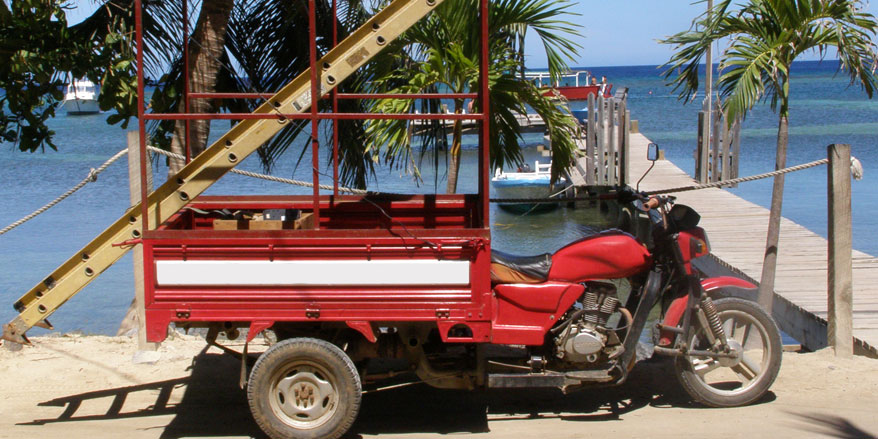
The origin of the word “travel” is most likely lost to history. The term “travel” may originate from the Old French word travail . [3] According to the Merriam Webster dictionary, the first known use of the word travel was in the 14th century. It also states that the word comes from Middle English travailen , travelen (which means to torment, labor, strive, journey) and earlier from Old French travailler (which means to work strenuously, toil). In English we still occasionally use the words travail and travails , which mean struggle. According to Simon Winchester in his book The Best Travelers’ Tales (2004), the words travel and travail both share an even more ancient root: a Roman instrument of torture called the tripalium (in Latin it means “three stakes”, as in to impale). This link reflects the extreme difficulty of travel in ancient times. Also note the torturous connotation of the word “travailler.” Today, travel may or may not be much easier depending upon the destination you choose (i.e., Mt. Everest , the Amazon rainforest ), how you plan to get there ( tour bus , cruise ship , or oxcart ), and whether or not you decide to “rough it (see extreme tourism and adventure travel ). “There’s a big difference between simply being a tourist and being a true world traveler,” notes travel writer Michael Kasum.

voyage (n.)
c. 1300, from Old French voiage "travel, journey, movement, course, errand, mission, crusade" (12c., Modern French voyage ), from Late Latin viaticum "a journey" (in classical Latin "provisions for a journey"), noun use of neuter of viaticus "of or for a journey," from via "road, journey, travel" (see via ).
voyage (v.)
late 15c., from Old French voyager , from voiage (see voyage (n.)). Related: Voyaged ; voyaging .
Entries linking to voyage
1779, from Latin via "by way of," ablative form of via "way, road, path, highway, channel, course" (from PIE root *wegh- "to go, move, transport in a vehicle," which is also the source of English way (n.)).
1670s, French, "pleasant journey," from bon "good," (see bon ) + voyage (see voyage (n.)).
- See all related words ( 5 ) >
Trends of voyage
More to explore, share voyage.
updated on September 28, 2017
Trending words
- 2 . knowledge
- 4 . remission
- 6 . believe
- 7 . mission
- 8 . community
- 10 . repentance
Dictionary entries near voyage
voyeuristic
- English (English)
- 简体中文 (Chinese)
- Deutsch (German)
- Español (Spanish)
- Français (French)
- Italiano (Italian)
- 日本語 (Japanese)
- 한국어 (Korean)
- Português (Portuguese)
- 繁體中文 (Chinese)
- Skip to Content
- Skip to Footer
Please enable JavaScript for this site to work properly.
Learning about the building blocks of words can help you make sense of unfamiliar words.
handy, capable of
destroy, get rid of
bitter, sharp, tart
inclined to, abounding in
characteristics of
sharp, keen, fierce
state of being something
sharp, keen, point
to, towards
attach to, add, give to
thing or person made by a certain process
possessing a quality
feel, perceive
influenced, strongly moved
to do something
leading, drawing forth
struggle, contest, conflict
field, country
do, act, drive
other, different
action, process
cause to grow, feed
of or relating to
walk, go around
both, around
state or condition
to be ...ed
of or pertaining to
mind, spirit
opposite, against
being in a state or condition
not, without
relating to
suitable, fit
think, judge
chief, principal
chest, coffer
burn, be on fire
pertaining to
to divide into small joints; speak clearly
skill, craft
person or thing belonging to
rough, harsh, roused to anger
possessing a certain quality
to make have a certain quality
act of doing something
state or quality of
of or belonging to
hear, listen to
diviner, seer
desire, be eager
forms a noun
to, towards, at
beat, pound
war, fighting
to treat in a certain way
strike, push
warm, be hot
be of brilliant whiteness
rule, straight rod, standard
taken, seized
take, seize
wagon, cart
burnt, red hot
swift, speedy
assessed, judged, rated
sift, perceive, decide
compete, strive, contend
sheet of paper
pure, without stain
around, about
moved, stirred up
clear, bright
mercy, mildness, calmness
sloping region; zone of the Earth; ladder
slope, hill
shut, close
shut, closed
cook, ripen
learn, know
with, together
suitable, convenient
common, public, general
celebration, fun
join, win over
hide, put away
come together, agree
horn, point
buffet, cuff, blow
believe, trust
burst, crack
grow, arise, increase
sift, discern, separate
shout out in complaint
fault, blame, guilt
ran, hurried
worry, anxiety, attention
become used to
circle, wheel
suitable, graceful, proper
destroy, wipe out
loss, penalty, injury
spirit, divine power
mocked, made fun of
through, across
apt at teaching
apart, not, away from
worthy, deserving
separate into parts
separated into parts, divided
feel pain, grieve, suffer
dragon, snake, serpent
hard, harsh
out of, from
having a particular state
temple, house
bring about, accomplish
doing something
that which is to be ...ed
made of, pertaining
around, near
wander, make a mistake
act or practice
becoming; beginning to be
fix the value of
little, diminutive
state or quality
enforce, demand
used for spelling and pronunciation
easy, easily accomplished
face, surface
trick, deceive, be in error
household, familiar group
weary, tire
foolish, silly, stupid
speak, talk, say
like, support
happy, lucky
boil, be hot
carry, bring, bear
feast, holidays
pretend, invent
trust, faith
form, shape
daughter, son
end, form a boundary
fastened, nailed, secured
struck, struck down
flow, stream, glide
hearth, fireplace
luck, chance
strong, vigorous, powerful
pour, pour out, spread out
broken, crushed
break, crush
repeated, constant
forehead, foremost part
fruit, enjoyment
shine, flash
full of, resembling
perform, complete
bottom, depths, basis
rage, be mad
check, restrain
innate quality, inborn talent
born, produced
kind, type, class
bud, embryo
bear, bring, carry
gathered into a ball-shaped mass
tongue, language
swallow, gulp down
line, stroke of a pen, letter
great, lofty, powerful
pleasing, welcome
heavy, serious, burdened
steer a ship
stick, cling, hold fast
cheerful, merry
human being, man
urge, encourage
tremble, dread, shudder
host, guest
over, above
under, below
of or connected with
characteristic of
belonging to
image, statue
one relating to
own, personal, private
image, likeness, shape
that which does something
produce, bring forth
tending to do or be something
likeness, idea
copy, resemble
command, provide leadership
impulse, attack
one who shows, forefinger
a or of a continuous action
whole, entire
between, within, among
be envious of
in, on, into
of the nature of
become angry
verging upon, somewhat
action or process of doing something
set of beliefs
distinctive trait of language
name of a certain system
characterized by
one who performs an action; believer
of or that which does something
make or treat in a certain way
throw, cast
join, attach, form a link
pertaining to the day, daily
joined, attached
swear, take an oath, law
young, young man
next to, beside
be sluggish, wilt, lack vigor
loosen, take one's ease
gathered, chosen
speak, read
bind, choose
gather, read
letter of the alphabet; document
light, of little weight
left behind, abandoned
it is permitted, one may
strike, harm
doorway, threshold
line, string, thread
flow, be liquid
letter of the alphabet
tie, bind, link
having spoken
study, science, theory
word, study, reason
talk, speak
struggle, fight against
light, brightness, clarity
play, trick
light, glow
illumine, brighten
wash, bathe
in a particular way or manner
plan, trick, artifice
large, long
ruler, leader
large, great
greater, larger
madness, frenzy
stay, remain
learn, understand
middle, in the middle, in half
blend, mingle, mix
great, large
remembering
fault, defect, lying
act of measuring
quality, condition
earned, gained, deserved
beyond, change
pass, proceed
one thousand
imitator, mimic
lean forward, threaten
lessen, make smaller
wrong, wrongly
active, quick
measure, method, manner
grind in a mill
of or resembling
one, single
showed, pointed out
warn, advise, remind
shape, form
custom, habit, manner
die, decay, death
gift, public service
delay, stay behind
change, alter
numbness, deadness
deny, say not
vigor, determination
state, quality, condition
tied, bound
harm, injure
well known, famous
law, custom
carpenter's square, pattern
gotten to know, found out
messenger, message, report
messenger, report
against, in the way
smear with oil
burden, load
think, suppose
wish, choose
to, towards, against
wealth, abundance
sight, view
order, row, series
furnished with organs
one who does something
rise, begin
full of, having
state; process; condition
possessing the nature of
sharp, keen
fasten, drive in
stroke, caress, touch
beside, alongside
come to sight
make, prepare
suffer, endure
dough, paste
feeling, disease
stumble, sin
hang, weigh
almost, nearly
around, near, about
seek, attack, go for
cause to appear, show
saying, speech
voice, sound
paint, portray
pile, pillar
pierce, prick
attempt, attack
pit, kernel
pity, right conduct
cleanse, make honest
please, suit, be acceptable
mourn for, beat
plant, sprout
flat, broad
applaud, clap
applaud, strike
smooth, refine, polish
weigh, consider
part, share, division
harbor, port
placed, put
have or take control of
pause, temporary halt
capable, powerful
specify, place
worth, price
having prayed or entreated
seize hold of
seized hold of
before, in front
previous, in front
without, individual
prove, test, approve
pleasingly inclined
proper, fitting, one's own
next, nearest
pointed, stabbed, pierced
point, pierce, prick
rotten, stinking, decaying
think, consider
know, learn
of what kind?
complain, protest
rested, stilled, calmed
seek, strive for
rest, be still, stay calm
who, what, which
be rotten, stink
snatch, grab, seize
loose-knit, spaced thinly
scrape, scratch
ruled, guided, put right
back, again
rule, guide, direct
stay put, stand still
place for; thing used for
oak, strength
chew, eat away
ask, request
unskilled, untaught
sacred, holy
perceive keenly
health, safety
leap, spring forward, jump
in good taste, wise
climb, mount
form, shape, manner
split, division
probe, examine
ring, circle
sit, settle, rest
felt, sensed, perceived
feel, sense, perceive
old man, elder, old
clear, untroubled
keep, guard, save
wait on, serve
strict, grave
hiss, whistle
mark, seal, sign
pretend, copy, imitate
curve, fold, hollow
examine, consider
be in the habit of
whole, firm
having a certain quality
wise, clever
distance, area
see, observe, look, watch over
see, look at, observe
scatter, besprinkle
bright, shining
pledge, promise
seed, a sowing, a scattering
pledged, promised
stand, stand still
standing, standing still
mark, brand, tattoo-mark
set up, decided
covering, spread
drawn tight, confined
draw tight, tighten, confine
build, construct
become dazed, be amazed
make sweet, urge
under, from below
highest, topmost
taken up, put on
take up, put on
board, plank
silent, quiet
stained, dyed
touch, affect
arrange, put in order
skill, art, craft
cover, shield, protect
regulate, modify
stretch, stretch out
stretched, stretched out
boundary, end, limit
earth, land
witness, proof, indicator
proposition, idea put forth
relating to a process or state
fear, be afraid
prick, quench
touch, reach, affect
label, title, description
raise, endure
be stiff, be numb
twisted, wound, wrapped
across, through
shake, tremble
alarmed, fearful
divided, granted, given credit
entangle, make difficulties
rubbed, worn away
nourishment, food
turn, change
thrust, push
trunk, removed by chopping
thrusted, pushed
swell,disturbance, uproar
confusion, turmoil, disorder
beat, blunt, deaden the senses
protect, catch sight of
blow, impression, form
state; quality
rich in, full of
repeated activity
shadow, shade
not, opposite of
shows actions or results
active during a given period
useful, practical
wander, roam, rove
be strong, be of value
from before
empty, illusory
steam, spoiled, flat
different, diverse
go, proceed, advance
carry, bring
worship, revere, honor
get even, revenge
clothing, garments
old, long-standing
see, look at
shake, quickly move to and fro
instead of, change
see, take care
see, perceive
act, be lively
conquer, win
avenger, defender, revenge
excellence of character
entrails, internal organs
flaw, defect
road, way, journey
called, called upon
call, call upon
fly, move swiftly, speed
rolled, wrapped up
roll, wrap up, turn round
promise, pledge
make common, publish
pluck, tear up
towards a place
desolate, laid waste
eager rivalry, fierceness
Differentiated vocabulary for your students is just a click away.
We use cookies! 🍪
We use cookies to provide you with the best online experience. By using this site, you agree to our privacy policy and terms of use .
Get Started
Hi there! Tell us a little bit about yourself to begin.
I'm an educator
looking to use Membean at my school or district.
I'm a parent
looking for my kid(s) to use Membean.
I'm interested in: Select... Homeschooling Independent Learning
I'm an individual
wanting to study for a test or to improve my vocabulary.
I'm studying for: Select... SAT GRE Personal Use

Boeing Blew the Whistle on Itself. The Stock Slumped.
B oeing stock briefly slumped more than $7, or 4.6%, in late afternoon trading Monday after the Federal Aviation Administration opened an investigation into inspection documentation for its 787 jets.
That wiped out an earlier gain in the price. Boeing stock closed at $178.35, down 0.8%, following a rebound shortly before the end of the session. The S&P 500 and Nasdaq Composite rose about 1% and 1.2%, respectively.
The FAA is looking into whether Boeing staff falsified some inspection records. “The FAA has opened an investigation into Boeing after the company voluntarily informed us in April that it may not have completed required inspections to confirm adequate bonding and grounding where the wings join the fuselage on certain 787 Dreamliner airplanes,” the agency said.
“The FAA is investigating whether Boeing completed the inspections and whether company employees may have falsified aircraft records,” it added. “At the same time, Boeing is reinspecting all 787 airplanes still within the production system and must also create a plan to address the in-service fleet.”
Boeing shared an internal communication from 787 program lead Scott Stocker detailing what happened after an employee noticed irregularities with a quality test looking at where the wing is joined to the jet’s body.
“After receiving the report, we quickly reviewed the matter and learned that several people had been violating Company policies by not performing a required test, but recording the work as having been completed,” reads part of the communication.
Boeing notified the FAA.
“Our engineering team has assessed that this misconduct did not create an immediate safety of flight issue,” added Stocker. “But it will impact our customers and factory teammates because the test now needs to be conducted out of sequence on airplanes in the build process.”
Boeing has faced more regulatory scrutiny of its quality and manufacturing process since early January, when an emergency-door plug blew out in midair on a 737 MAX 9 jet operated by Alaska Air.
The FAA said that as the latest investigation continues, it “will take any necessary action—as always—to ensure the safety of the flying public.”
The 737 MAX is a single-aisle jet. The 787 is a much larger twin-aisle aircraft.
Shares of Spirit AeroSystems, which makes fuselages for 787 jets, closed up 0.2% at $33.02. Shares traded as low as $31.49. That is a signal that investors may have drawn the conclusion that the inspection issue wasn’t linked to the supplier.
Write to Al Root at [email protected]

Yo-yos are back, someday, maybe
The classic toy, with chicago roots, has its ups and downs..

Boys play with yo-yos at a Chicago schoolyard in 1967.
Bob Kotalik/Sun-Times files
My wife sleeps late while I wake early.
“I’m going to walk the dog,” I explained a few weeks back, after she stirred while I was putting on my shoes.
“Do you have a yo-yo?” she asked, sleepily.
“No,” I said, puzzled, slow on the uptake, figuring she was coming out of a dream. “Why do you ask?”
“‘Walk the dog,’” she explained. Ah. A yo-yo trick.
My next thought — I kid you not — was: I should get a yo-yo and learn tricks to entertain our future grandchildren. Then I wondered: Are there people who teach yo-yo tricks? Are yo-yos even still a thing? Or has technology completely killed them?
“Our demographic is 6 to 15 years old,” said Josh Staph, CEO and president of the Duncan Toys Company, manufacturer of yo-yos for nearly a century. “There’s smartphones, there’s TikTok. A lot of elements that can provide immediate gratification to kids. A yo-yo does not provide immediate gratification. You have to try it a few times.”
That you do. My only childhood memory of yo-yos is never being any good with them. “Walk the dog” is a trick where you throw the yo-yo down, hard, and it remains at ground level, spinning — like a dog on a leash — until you summon it back up with a snap of the wrist. My string tended to break.
Yo-yos are another classic plaything to emerge from Chicago, along with Tinker Toys, Lincoln Logs and Raggedy Ann. Not that they were invented here — basically a vertical top with the string attached, yo-yos can be traced to antiquity. Women play with yo-yos on Grecian urns.
Donald F. Duncan was a Chicago entrepreneur in the 1920s who started a parking meter company. He visited California in 1928, where he saw Pedro Flores demonstrate a yo-yo. Flores was from the Philippines, where yo-yos were big, and had already trademarked the word “yo-yo,” Tagalog for “come come.” Duncan bought the rights then got busy, joining forces with newspaper titan William Randolph Hearst to get newsboys pushing yo-yos.
Yo-yos were a craze in Chicago in the summer of 1929 — newspaper columnists complained you couldn’t enter a Loop building without fighting your way through crowds gathered to watch experts perform tricks. People grew annoyed.
“Golly Gene, yesterday I met a friend who wasn’t bouncing a yo-yo,” the Chicago Daily News “Hit or Miss” column quipped sarcastically in 1931. “Honest, I didn’t know what to say.”

Chicagoans participate in a yo-yo competition in front of the Chicago Theatre in 1962, a promotional event in connection with a movie that contained a yo-yo scene.
Chicago Sun-Times collection/Chicago History Museum.
The earthquake for Duncan came in 1965, when a lawsuit found that the term “yo-yo” had lost its trademark status, like “zipper” or “aspirin.” Competitors sprung up. Then handheld computer games happened.
“Up until the late 1990s, it was a pretty cyclical business,” said Staph. “Every seven or so years. 1999 was the last big year.”
While the present is fairly constrained — Duncan Toys, now based in Ohio, has three full-time employees — the company has big plans to go high tech.
“We’re looking into modernizing the most popular toy of all time with a gaming component,” said Staph. “A patented technology, built-in sensors allow a person to perform tricks that are motion tracked. Playing with a yo-yo can be turned into a digital experience.”
Until then, Duncan sent me a dozen yo-yos. My 9-year-old neighbor is the prime yo-yo demographic, and I shot her mom an email asking for her help as a beta tester. They trooped over. I asked the young lady if she is familiar with yo-yos — yes, her dentist once gave her one. Are they fun? “No,” she replied. But she took two, and her mother took another two — one for herself, one for her teenage son.
A few days later the mom was aglow — she was loving the yo-yo, finding it both meditative and addictive. The girl was quiet. I asked her what yo-yos need. “Colors,” she said, and specialists, which I took to mean TikTok influencers.
A purist myself, I began with an Imperial, the classic $5.99 model. I couldn’t even get the thing to return back up. In truth, I had trouble winding the string — it kept slipping — and online guidance was useless. My wife, bless her, went straight to the Hornet, a more advanced model, and when I tried that I was off to the races. Not only could I made the Hornet go up and down, but a hard toss and it would stay there, spinning, until I summoned it back up.
“Look!” I enthused. “I’m walking the dog.”


IMAGES
VIDEO
COMMENTS
travel. (v.) late 14c., "to journey," from travailen (1300) "to make a journey," originally "to toil, labor" (see travail ). The semantic development may have been via the notion of "go on a difficult journey," but it also may reflect the difficulty of any journey in the Middle Ages. Replaced Old English faran.
1. "travel (v.) late 14c., "to journey," from travailen (1300) "to make a journey," originally "to toil, labor" (see travail). The semantic development may have been via the notion of "go on a difficult journey," but it also may reflect the difficulty of any journey in the Middle Ages. Replaced Old English faran."
Etymology. The origin of the word "travel" is most likely lost to history. The term "travel" may originate from the Old French word travail, which means 'work'. According to the Merriam-Webster dictionary, the first known use of the word travel was in the 14th century. It also states that the word comes from Middle English travailen, travelen (which means to torment, labor, strive, journey ...
The root word for "travel" is derived from the Old French word "travailler," which means "to work, labor, toil, or journey." Interestingly, it originally denoted the strenuous nature of medieval journeying. Hence, travel inherently carries the essence of a laborious journey.
The etymological origin of the word travel is torture; these days, travel is anything but. Modern planes, like , make travelling to incredible destinations around the world, cost effective, people friengly, and fun. On October 1st, 2022, in North America, winter is coming. Now is as good a time as any to plan a trip to South America. Contact travel agency now.
A variant of the prefix trans-, tra-, also means "across.". A tra jectory is the path that a thrown object travels "across" during its journey. When you tra verse a country, you travel "across" it. And when you tra duce someone's character, you lead it from its current good state "across" to one of dishonor or disgrace.
The activity or traffic along a route or through a given point. The working motion of a piece of machinery; the length of a mechanical stroke. There was a lot of travel in the handle, because the tool was out of adjustment. My drill press has a travel of only 1.5 inches. ( obsolete) Labour; parturition; travail .
TRAVEL meaning: 1. to make a journey, usually over a long distance: 2. If something travels well/badly, it…. Learn more.
travel sickness; a travel bag/clock (= for use when travelling) a travel guide (= a book of useful information for travellers) If you're going abroad, get some travel insurance. your passport and other travel documents; The pass allows unlimited travel on all public transport in the city. I used my compass to confirm my direction of travel.
1 [intransitive, transitive] to go from one place to another, especially over a long distance to travel around the world I go to bed early if I'm traveling the next day. I love traveling by train. We always travel first class. We traveled to California for the wedding. When I finished college I went traveling for six months (= spent time visiting different places). travel something He traveled ...
Travel definition: to go from one place to another, as by car, train, plane, or ship; take a trip; journey. See examples of TRAVEL used in a sentence.
travel: [verb] to go on or as if on a trip or tour : journey. to go as if by traveling : pass. associate. to go from place to place as a sales representative or business agent.
journey. (n.). c. 1200, "a defined course of traveling; one's path in life," from Old French journée "a day's length; day's work or travel" (12c.), from Vulgar Latin * diurnum "day," noun use of neuter of Latin diurnus "of one day" (from dies "day," from PIE root *dyeu-"to shine"). The French fem, suffix -ée, from Latin -ata, was joined to nouns in French to make nouns expressing the ...
The job gives her the opportunity to travel abroad. We decided to travel by car. We had to travel separately as we couldn't get seats on the same flight. We plan to travel through Thailand and into Cambodia. business people who travel regularly to the US; information for the backpacker who wants to travel farther afield; Children under five ...
definition 1: to journey from place to place. Many people like to travel during their vacations, but others prefer to stay home. I've traveled a lot in North America, but I've never traveled to other continents. synonyms: go, journey, tour. similar words: cruise, fly, junket, roam, rove, sightsee, trek, visit, voyage. definition 2:
TRAVEL definition: 1. to make a journey, usually over a long distance: 2. If something travels well/badly, it…. Learn more.
Root word: travel. Travel can serve as a verb or a noun.. As an intransitive verb, "travel" is defined as "To go on a trip or tour to a destination.". Similarly, as a transitive verb, "travel" is defined as "to journey through or over.". The definition for "travel" in its noun form is "a journey, especially to a distance or unfamiliar place."
The origin of the word "travel" is most likely lost to history. The term "travel" may originate from the Old French word travail.[3] According to the Merriam Webster dictionary, the first known use of the word travel was in the 14th century. It also states that the word comes from Middle English travailen, travelen (which means to torment, labor, strive, journey) and …
"travel, journey, movement, course, errand, mission, crusade" (12c., Modern French… See origin and meaning of voyage.
Learning about the building blocks of words can help you make sense of unfamiliar words.
A root word is the fundamental unit of a word. A root word has nothing added at the beginning or the end. While some root words are standalone words in English, others need a prefix (like "anti-" or "un-") and/or a suffix (like "-able" or "-ist") to create a meaningful word.
Function: verb. Inflected Form (s): trav·eled or trav·elled ; trav·el·ing or trav·el·ling tra-və-liŋ, trav-liŋ. Etymology: Middle English travailen, travelen to torment, labor, strive, journey, from Anglo-French travailler. Date: 14th century. Please note the Etymology - Travel is a close sibling to the French word Travail ...
Story by Al Root • 20m B oeing stock slumped almost $6, or 3.3%, in late afternoon trading Monday after the Federal Aviation Administration opened an investigation into 787 inspection documentation.
The classic toy, with Chicago roots, has its ups and downs. Boys play with yo-yos at a Chicago schoolyard in 1967. My wife sleeps late while I wake early. "I'm going to walk the dog," I ...